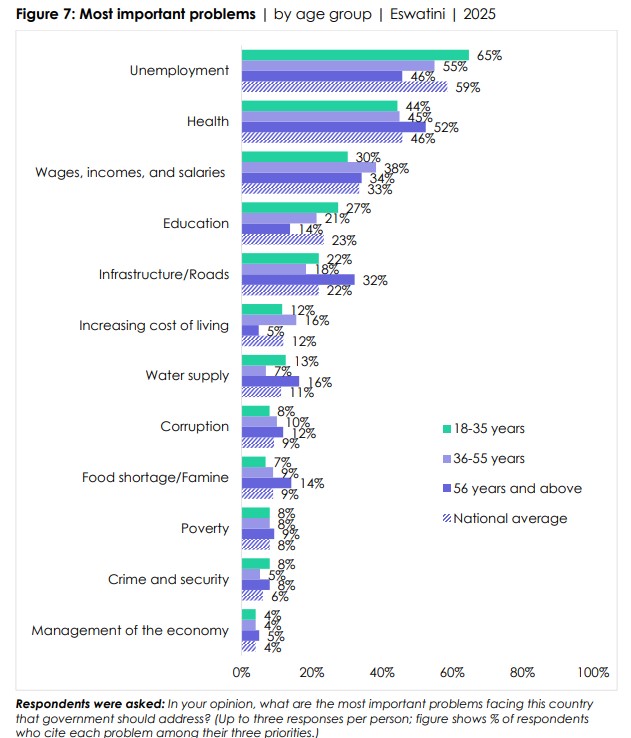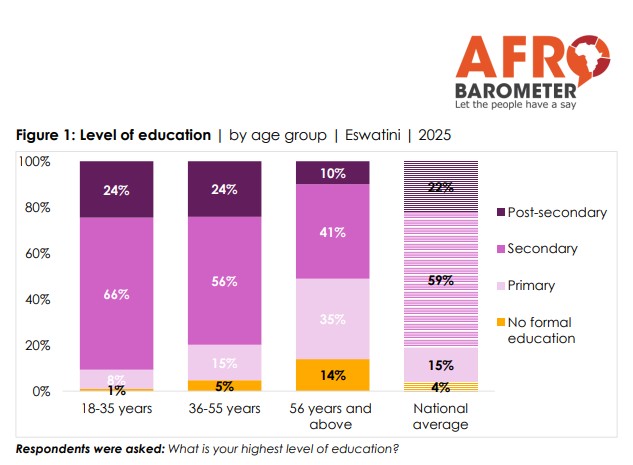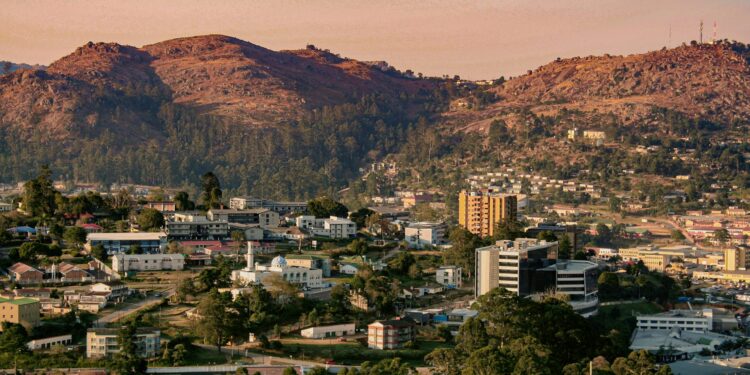Mbabane – More than half of Eswatini’s youth aged 15 to 35 are struggling to find work, with 56 percent reported unemployed according to the Ministry of Labour and Social Security’s 2023 survey. Despite government initiatives and support from development partners, including the Eswatini Youth Development Programme and the Youth Enterprise Revolving Fund, young Emaswati are increasingly looking abroad for better opportunities.
The Eswatini Youth Development Programme targets both graduate placement and artisanal training while the Youth Enterprise Revolving Fund offers collateral-free loans of up to E200,000 to assist aspiring entrepreneurs. Nevertheless, the economy’s slow growth limits employment opportunities. Each year around 25,000 young people enter the labour market but only 1,000 new jobs are created according to the World Bank. More than one in three youth 36.5 percent are neither in education, employment, nor training.
The 2023 Global Youth Development Index ranks Eswatini 155th out of 183 countries placing it ahead of regional neighbours Malawi, Zimbabwe, Angola, Lesotho, and Mozambique but behind Mauritius, Namibia, South Africa, Botswana, and Zambia.

Afrobarometer’s 2025 survey conducted in Eswatini by QA Strategic Information with a nationally representative sample of 1,200 adults shows a generational gap in education and employment. Nine out of ten youth aged 18 to 35 have secondary education 66 percent or post-secondary education 24 percent compared with 51 percent to 80 percent of older adults. Yet more than half of youth 53 percent are unemployed and actively seeking work. Barriers include lack of experience 25 percent, mismatch between education and job requirements 21 percent, reluctance to work in tough sectors such as agriculture or manual labour 17 percent, and inadequate training or preparation 13 percent.
Half of young Emaswati express a desire to start their own businesses. Job creation tops their priorities for government support followed by vocational training 20 percent, access to business loans 17 percent, education 10 percent, and social services 3 percent. On top issues including unemployment, health, wages, education, and infrastructure, majorities of youth rate government performance negatively with 89 percent disapproving of efforts to keep prices stable and 86 percent dissatisfied with job creation initiatives. A slight majority 54 percent say Eswatini is moving in the wrong direction and assessments of the country’s economic situation are bleak with only 11 percent satisfied with national conditions and 23 percent satisfied with their personal living conditions.

The survey reveals that countries such as South Africa, England, Ireland, and Taiwan are attractive destinations for young Emaswati seeking stability and better employment. Half of youth have considered emigrating with 71 percent citing jobs as their main motivation. Other reasons include escaping economic hardship 12 percent and pursuing education 5 percent. Compared to 2018 consideration of emigration among youth has risen by 10 percentage points.
Afrobarometer, a pan-African nonpartisan survey network, coordinates research across roughly 35 countries. Regional partners include the Ghana Center for Democratic Development CDD-Ghana, the Institute for Justice and Reconciliation IJR in South Africa, and the Institute for Development Studies IDS at the University of Nairobi Kenya. Technical support is provided by Michigan State University, University of Cape Town, and University of Malawi.
Researchers warn that without increased job creation and skills development, the exodus of young educated Emaswati could continue, potentially draining the country of its most dynamic human resources.
Download the Afrobarometer report on Eswatini youth employment and emigration trends, AD1064, released 24 October 2025.











Discussion about this post